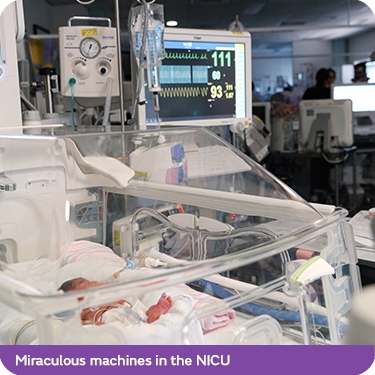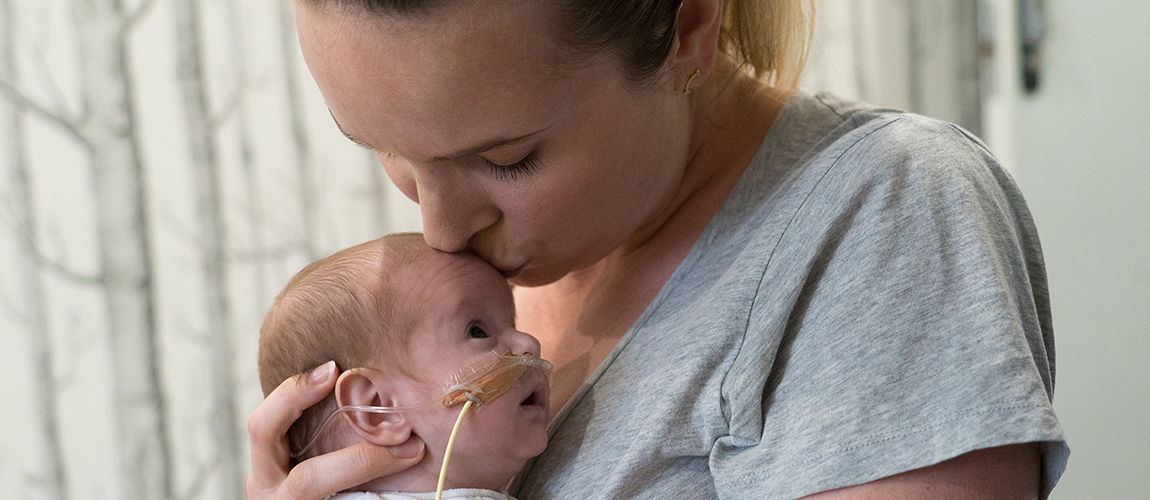The Royal Hospital for Women is a place of rich and raw emotions. Surely one of the most fraught wards is the Newborn Intensive Care Unit (NICU) where a battery of miraculous machines - incubators, ventilators, drips and special lights - keep premature babies alive.
Here parents keep anxious vigils over humidicribs for months on end as babies born at the extremities of life fight to survive.
Although great strides have been made in technology and survival rates have drastically improved, the statistics are still confronting. If babies are born at 23 weeks’ gestation, only three out of ten survive. Of these survivors, two to three in ten may have a disability such as developmental delay, cerebral palsy, or hearing or vision impairment.
If they are born at 28 weeks’ gestation, they still have a five to ten per cent risk of having a significant disability.
Former Olympic swimmer Marieke D'Cruz and her husband Jason experienced the emotional roller coaster of the NICU after their daughter Camille was born eleven weeks premature.
Camille weighed just over one kilogram, and was whisked into the NICU where staff monitored her around the clock, and a ventilator helped her to breathe. At one stage she underwent a blood transfusion and was put on an IV drip.
"It was both terrifying, and humbling" says Marieke, now a management consultant. “It was a crash course in parenting – not being able to control the outcome, no matter how hard I tried. I realised that the only thing I could control was how I responded to the situation.”



It can be equally harrowing for NICU staff, as they watch babies cling to life, and their parents grappling with the hardest decisions they'll ever make in their lives.
UK trained nurse Ali Kelly has sat through many emotional meetings, when parents are trying to work out whether to stop care for their babies because their quality of life will be so poor. When these babies don't survive, she says, “It is like seeing someone’s world ripped apart.”
Neonatologist Dr Tim Schindler has been working in the NICU for a decade and says it is an enormously stressful time for parents.
"It's a long, difficult journey. The babies can be here for months. They can seem like they are making a lot of improvement, but then they might suddenly go backwards. It can be very distressing and frustrating."
"It's a true privilege to be involved at such an incredibly vulnerable time in their lives," Tim says.
"This is a place of great hope and joy, as well as great sadness when some babies don't make it."
Professor Kei Lui, The Royal’s NICU director, has been looking after premature babies for more than 30 years, and says it's impossible for staff members not to be deeply affected when one of their tiny charges fails to make it.
"It's absolutely devastating for the parents, so we try to look after them as much as we can. No matter how short a baby's life is, they are always part of the family. They are always remembered."
Watching parents grow in confidence as their baby puts on weight and begin to thrive remains one of the thrills of Professor Lui’s life. "We have a lot of happy goodbyes," he says. "It's wonderful watching them go home with a healthy baby. There's nothing quite like it."
Today, Camille has doubled her weight, and the D'Cruz family are looking forward to a bright future. But not a day goes by without reflecting how lucky they were to receive the very best of medical treatment at The Royal.
To help support and continue the life saving work that takes place in the Newborn Intensive Care unit, please complete the below:




